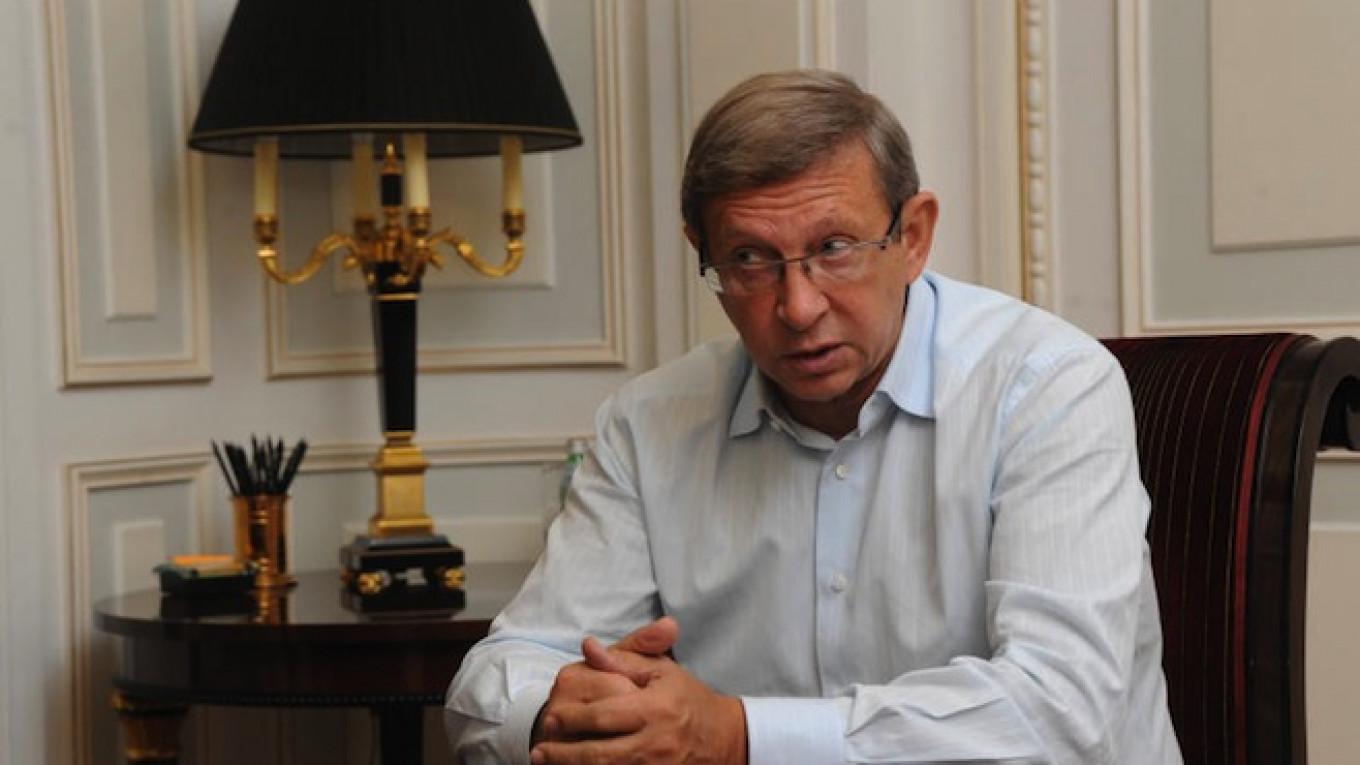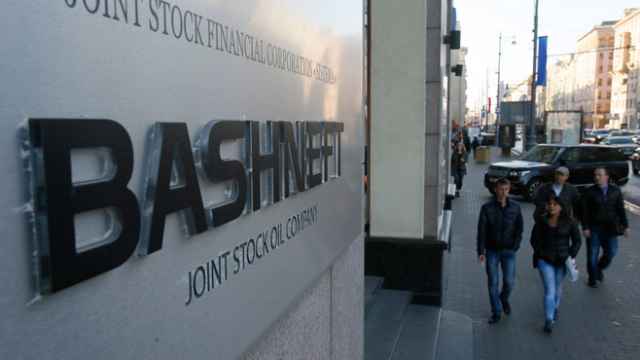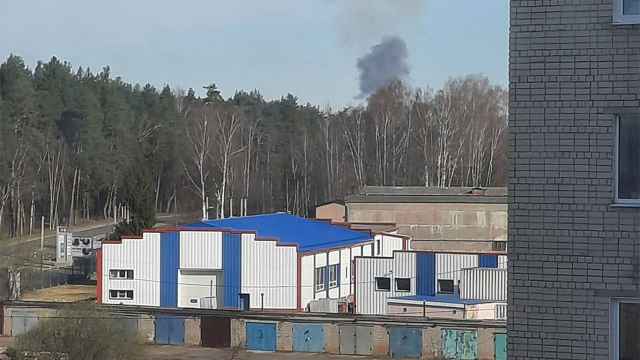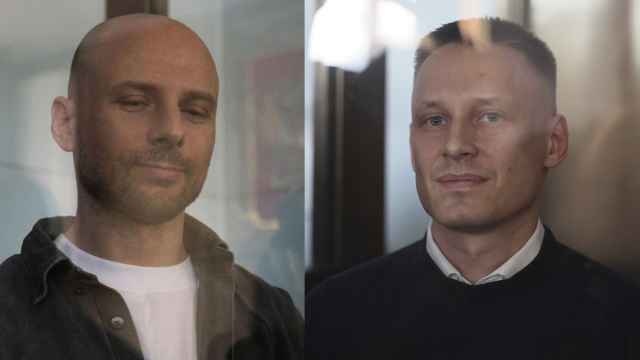The arrest of Vladimir Yevtushenkov, the largest stakeholder in one of Russia's biggest private corporations, will deal another blow to Russia's already decimated investment climate and is emblematic of the state's attitude toward private property, analysts said Wednesday.
Yevtushenkov, who was placed under house arrest in his estate west of Moscow on Tuesday, is accused of laundering shares in the Bashneft oil company, which investigators say was illegally acquired by Yevtushenkov's Sistema.
Bashneft, one of Russia's largest oil producers, was acquired by the Sistema conglomerate from the government of the Bashkortostan republic for $2.5 billion in April 2009. The company paid $2 billion up front, with the remaining $500 million planned to be paid during the next 14 months. However, a month later an additional agreement was signed that set the final price at $2 billion.
The Investigative Committee says that the $500 million difference was not legal and amounts to embezzlement. Interfax news agency reported Wednesday that an international arrest warrant had been issued for Ural Rakhimov, the son of Bashkortostan's former president Murtaza Rakhimov. Ural Rakhimov was head of Bashneft when it was owned by Bashkortostan and oversaw the deal.
Sistema said in a press release that it considers the accusations "completely ungrounded."
Yevtushenkov himself denies any wrongdoing, Interfax cited a source close to the investigation as saying.
After being summoned for questioning to the Investigative Committee over the Bashneft case in July, he told Vedomosti that "a raider-style seizure" of the company was possible, without specifying a possible perpetrator.
Bashneft was planning a secondary public offering of its shares in London this fall in order to make the ownership structure more secure.
Politics or Raiders?
Russia has not seen the arrest of such a high-profile businessman since 2003, when Mikhail Khodorkovsky, the largest shareholder in Yukos oil company, was arrested on what were widely viewed as politically motivated tax evasion charges. Yukos, which was Russia's largest company at the time, declared bankruptcy in 2006. Its most lucrative asset was absorbed by the state-owned Rosneft company, now headed by Igor Sechin, a long-time ally of President Vladimir Putin.
In an interview with Vedomosti business daily on Tuesday evening, Khodorkovsky said that unlike in his own case, he does not see any political motivation behind Yevtushenkov's arrest, and that the proceedings are driven by pure commercial and economic interest.
In June, Vedomosti cited an unidentified government official as saying that Rosneft was looking into purchasing Bashneft.
According to Khodorkovsky, Sechin is facing decreasing oil production in coming years, a problem that could be alleviated by acquiring Bashneft. In 2010, Bashneft won the license for the highly productive Trebs and Titov oil fields in the Arctic, one of the largest explored oil deposits in Russia.
"What I see here is a complete loss of control by the president [Putin]," Khodorkovsky told Vedomosti.
"I doubt that if he could see this, if he had assessed the situation properly, he would have given such a command, such permission. He probably does not see what is happening in front of his nose. He has other things to worry about. And this is very bad," he said.
Rosneft spokesman Mikhail Leontyev dismissed accusations of the company's interest in Yevtushenkov's arrest as "nonsense." Rosneft does not plan to acquire Bashneft and is not in talks about it, according to Leontyev.
"This is all fiction. I would advise my colleagues to stop disseminating information that is not grounded in anything tangible," he told Ekho Moskvy radio station.
Yukos 2.0
Alexander Shokhin, president of the Russian Union of Industrialists and Entrepreneurs, whose board members include Yevtushenkov, said that the situation resembles "Yukos No. 2."
"Without a doubt, this closely resembles 'Yukos No. 2': The head of a company that has paid $2.5 billion for an asset is accused of embezzling the shares and money laundering," Shokhin said.
"My position is that Yevtushenkov's house arrest worsens the economic and business climate in the country, as there are no grounds to believe that Yevtushenkov will hide from investigators or will not cooperate with them," Shokhin told Interfax.
Shokhin said he was sure that Yevtushenkov had gained support from the Kremlin when the decision to buy Bashneft was being made.
On Thursday, Shokhin will attempt to pass on a letter from the union in support of Yevtushenkov to Putin, he said.
Putin's spokesman Dmitry Peskov has labeled all attempts to draw parallels between Yevtushenkov's arrest and the Yukos case "ungrounded and inappropriate."
"I categorically disagree with Shokhin. All attempts to turn this into a political story are groundless," Peskov told Interfax.
Anatoly Chubais, head of the Rusnano corporation and one of the architects of privatization in Russia, said that Yevtushekov's arrest was "a serious blow to the business climate in Russia."
"Such blows are struck when the Russian economy is in recession or stagnation," Chubais told Interfax.
Sign of the Times
According to Yelena Panfilova, head of the Russian branch of Transparency International, Yevtushenkov's arrest is emblematic of Russia's transformed political and economic environment, in which isolationist foreign policy has changed the boundaries of acceptable action inside the country.
"In these confused and troubled times, it is much easier to seize assets and defeat a powerful opponent on the quiet," she told The Moscow Times.
"The state's priorities clearly do not lie in the rule of law; everything is concentrated on foreign policy, social stability and patriotism," she said.
Yevtushenkov's arrest could lead to a change in the rules of the game among Putin's inner circle, according to Panfilova, as the former policy of keeping oligarchs at arm's length as long as they are not involved in politics has clearly been abandoned.
"But so far no other oligarch has said anything in Yevtushenkov's defense," she said.
The Hunger Games
According to Nikolai Petrov, a Russian political scientist with the Higher School of Economics, Russia's political elite has entered a new era of shrinking resources, and they have to be in conflict with each other in order to survive.
"The situation resembles a sailing ship that has run out of food, so the people on the ship are thinking whom they can eat next," he said in a phone interview.
"Yevtushenkov was just the most vulnerable one, as his patron, Yury Luzhkov, was ousted from the position of Moscow mayor some time ago, and he himself has no direct link to Putin," he told The Moscow Times.
"In vegetarian times, this kind of figure would be saved, but these days it is the survival of the most predatory," he said, adding: "LUKoil might be next."
Contact the author at i.nechepurenko@imedia.ru
A Message from The Moscow Times:
Dear readers,
We are facing unprecedented challenges. Russia's Prosecutor General's Office has designated The Moscow Times as an "undesirable" organization, criminalizing our work and putting our staff at risk of prosecution. This follows our earlier unjust labeling as a "foreign agent."
These actions are direct attempts to silence independent journalism in Russia. The authorities claim our work "discredits the decisions of the Russian leadership." We see things differently: we strive to provide accurate, unbiased reporting on Russia.
We, the journalists of The Moscow Times, refuse to be silenced. But to continue our work, we need your help.
Your support, no matter how small, makes a world of difference. If you can, please support us monthly starting from just $2. It's quick to set up, and every contribution makes a significant impact.
By supporting The Moscow Times, you're defending open, independent journalism in the face of repression. Thank you for standing with us.
Remind me later.






